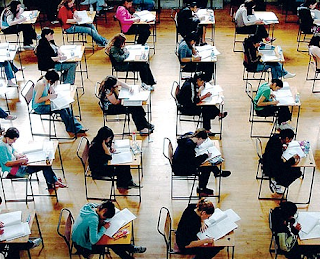
Students will be expected to read the passage carefully and show ability in their answers to respond to the writer’s choice of detail, approach to the subject matter and use of techniques. They will also need to be able to interpret the meaning of the passage, including its implications, and be able to quote and make textual references to support their points.
Questions will be phrased to be student friendly and to deliver a clear meaning. The shorter questions will be more factually based and the phrasing more structured, straightforward and direct, for example ‘What similarities and differences … does the writer notice?’ ‘Find four examples of…’ Question 3 will require more overall interpretation, for example ‘Show how the writer is successful in using language to make the situation real to the reader.’, ‘What indications are there that this is an eyewitness account?’
“Students will be expected to show ‘insight and engagement’ and to ‘develop and sustain interpretation.’ Students may be asked explanatory questions, such as: ‘Explain how the events were a turning point.’ They may also be asked to evaluate character, for example: ‘What personal qualities does Karen show in overcoming her difficulties?’
Typical Questions:
Explorers, or boys messing about?
How does the writer try to persuade the reader towards his point of view, that the men were irresponsible and immature?
Chinese Cinderella
How does Adeline Yen Mah present her relationship with her family?
A Passage to Africa — George Alagiah
Example question
In this passage, how does George Alagiah present his views about his experiences as a television reporter in Somalia?
You may include brief quotations from the text to support your answer.”
“Forms might include diary entries, letters (formal and informal), feature articles for magazines and so on. A variety of audience is also possible, ranging from the general (‘Give your views on a controversial subject relating to the passage.’) to the specific (‘Write an article for a school magazine on …’). The readership could also be defined by the given context (‘Write a review of a film, or book or television programme, suitable for posting on a website, which dealt with a similar theme to that of the passage.’) Note that the purpose and the audience will define the style; if the student is asked to write a letter to a head teacher then the choice of ‘street language’ and other slang would clearly be very inappropriate. Similarly, a letter to a friend would not be convincing if it did not include some conversational phrasing.”
“Your best friend has just received some very bad news and their reaction was, ‘There’s no point fighting it. Just give up.’
Write a letter to your friend explaining why they should adopt a positive approach to the news. Some example questions, with student responses and examiners’ comments are shown below.
Example question 1
Your school is to have a new building and your head teacher has decided it would be a good idea to bury a time capsule in the foundations, containing information about the school which future generations might find interesting. Write a lively account of your school in the form of a letter to pupils of the future, to be placed in the capsule. You should include information about the curriculum, sports and school rules.
and
‘My room.’
Write a letter to a friend who has never visited you, giving information about the room you spend most time in.
You should:
describe what this room is like
explain what you think of it
say how you would like to improve it.
and
‘Entertaining relatives: heaven or hell?’ Write a magazine article, drawing on your own or your friends’ experiences, explaining how to make things go as well as possible and pointing out what should be avoided.
If you’re finding this helpful, don’t be stingy – share it with your friends!
